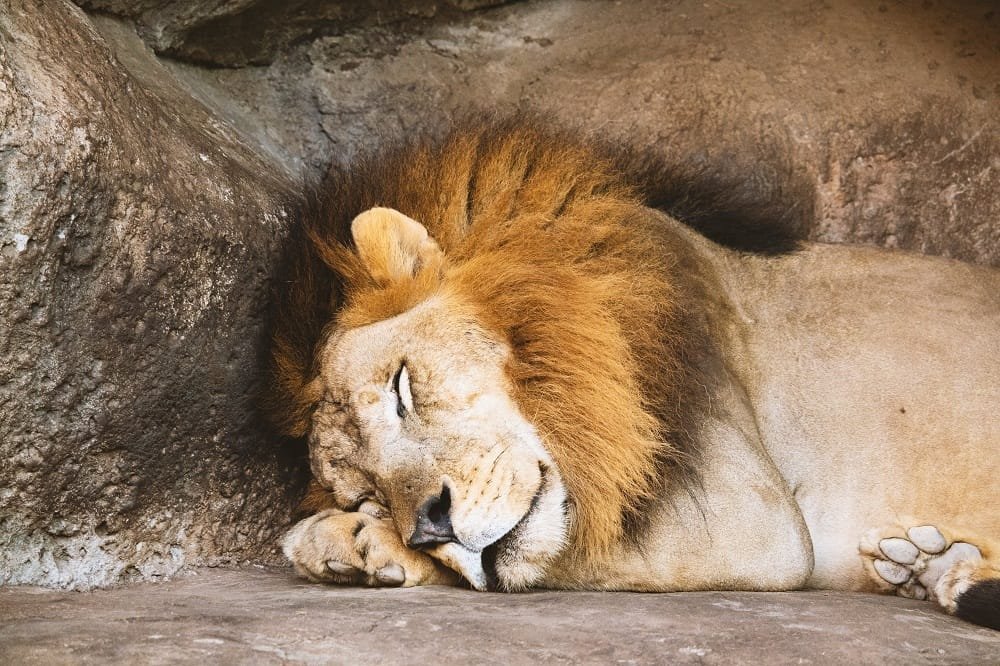The practice of fasting is as old as humanity. It was used for health benefits and religious reasons among others. While I don’t really understand the religious reasons, I find the health and fat loss benefits very intriguing.
If you have been in the fitness community for a while you have probably noticed several fitness experts using and recommending this “technique” for fat loss. Martin Berkhan and Brad Pilon being the most famous ones.
Today we will take a look at the basics – why should you start fasting, how and what results can you expect.
The Myth of Starvation Mode
When people say that if you won’t eat every three hours your body will turn into a starvation mode and start using muscles for energy, it really drives me nuts. Because if someone can say BS like this he obviously has no idea how the human body works, doesn’t have a clue about research, can’t point out difference between fat mass and muscle mass and is just repeating what he heard from some guy that took a summer dietitian course.
What should really raise the red flag if you hear about this concept, that’s finally starting to be pushed away even from media, is why the hell would your body consume muscle tissue before fat? That’s completely contrary to how your body works. The reason why your body stores fat is to save the energy for later when it’s needed and to protect your body from having to go into muscle tissue. Muscles on the other hand are responsible for movement, so why would they be consumed for energy? That just doesn’t make any sense (like most of the conventional fitness advice).
The idea is that after prolonged way of eating very little calories you should burn muscle instead of fat, that’s just BS.
The truth is, your body tries to preserve muscles at any cost, because it needs them to move around. It would only go there to get energy, if you were approaching life threatening low body fat levels. Most literature suggests that this is around 4-5% of bodyfat. And this suggestion seems very likely considering the fact that professional bodybuilders are on muscle building drugs even when they are cutting down to preserve the muscle mass. They want to get to extremely low body fat, so in their cases their bodies might actually try to “consume” lean body mass.
Anyway, the point is that yes something like a “starvation mode” does happen, but you have to be incredibly lean and I mean 4% body fat lean. And that’s not just six pack ripped, to give you an idea 4% of body fat is where you look sick, your face is skinny even though you may have big muscles, it just isn’t attractive and if you were at 4% you would know it.
Starvation mode is basically when your body is no longer able to metabolize fat for energy. This is why and when it turns to lean body mass. This will happen at a very low body fat level and for most people who are healthy is not a possibility.
Conclusion is that you don’t have to worry about your body turning to lean body mass as a fuel just by skipping few meals every day.
Fasting for Fat Loss
The biggest benefits of them all. If you ask a kid how to lose fat, he will tell you to eat less. I am not sure how we got to where we are today, but nowadays it seems that in order to lose weight, something that couldn’t’ be simpler, just eating less and burning more you have to follow endless list of rules.
Here is a list of what most dietitians would have you followed in order to lose fat:
- Eat six times a day
- Measure macronutrients in your food and make sure you follow the guideline
- Eat based on your weight
- Never eat chocolate, pizza, burgers, fries, sweets
- Eat 150-200 grams of protein every day
- Never go for than three hours without food
- Prepare all your food at home
- Eat only organic and raw food
- Eat healthy (what the hell does that mean??)
…and the list of stupid rules just goes on.
Well, this is NOT how to structure you diet.
Here is how should your diet actually look like:
- No rules at all
- Eat anything you want, but limit the amount
- Make your diet around your lifestyle and social eating events like weddings
- Eat less calories than you burn
All this is doable just by eating less during the day. However, frequent meals usually trigger eating response and your appetite goes up the minute you start eating.

This is where fasting or intermittent fasting comes into play. You can just go 16-48 hours without eating and not to worry about food at all. Just drink water, you can also have a coffee or green tea if you want. You will suddenly have more alertness, energy, be more productive, can handle more intense workouts and after a while feel less hungry, you will discover why and when you eat and you will end up with the ability to manage yourself better.
Fasting will help you get control over your diet. And since you will be eating less calories, you will lose fat.
Fasting will also help you account for errors in your calculations and can also let you enjoy some big social eating events you will go to.
Does Fasting Scare You?
Most people are afraid of not eating for a while. Just remember your recent visit to Starbucks where a friend asked you if you are going to take something with the coffee and you responded: “Of course we won’t eat for another five hours.”
If going through the day without food scarce you, you have some deep emotional disbeliefs we will have to work on.
Most people think that if they stop eating for few hours their body will somehow melt down or their metabolism will slow down and when they eat again they will start gaining fat fast. This is just a proof of how strong the current fitness marketing is, because none of this is true or based on any scientific research.
The best way to motivate customers to buy is fear and it seems that marketers think that this is the only way to sell their products, so they make up stories about metabolism slowing down or crashing down and your body consuming muscle tissue for energy.
If you think for a while and use common sense then ask yourself this. Why the hell would your body consume muscle mass when it has energy storage that’s exactly design to be used when there isn’t any food around? Just doesn’t make sense.
What happens when you fast and work out, what happens is quite the opposite. You will actually BUILD MUSCLE while fasting!
Fasting for Muscle Growth
One of the main benefits of fasting is natural production of growth hormone (the Hollywood drug). So, the best way to take advantage of this would be to work out in a fasted state.
You don’t want to do your first fast while working out, because it can take you a while until you get used to that feeling. However, after couple of fasts (about 4-5) you should be able to train in a fasted state and enjoy the benefits.
Personally, all of my strength training sessions are done in a fasted state, only occasionally I will go to the gym like 5 hours after a light meal. This may be like once a month, but other than that I always work out in 15-18 hours fasted state.
Other benefits of training in a fasted state than the growth hormone response is that you will have a lot of energy and alertness if your body doesn’t have to digest food. Just think about lions and other predators. When do they hunt? After having a big meal? No, they hunt when they are hungry and haven’t eaten for hours or days. Humans aren’t that different. Yes, during the first couple of fasts you will feel dizzy, but that’s because you have been overeating for the past 20 years or so, so your body is conditioned to have constant food intake, if you take it away it will crave it and will want to get it back. But this doesn’t mean it’s bad for you. This feeling will go away after couple of fasts and it will become natural for you and a part of your lifestyle, after a while you won’t even have to think about it.

When you get to that state, you can take it to that next step and start training in a fasted state. Actually, I have a rule about the intensity of a strength training routine, if you can train after having a meal, then you are not training hard enough.
If you have a good and challenging workout then fasting will help you take advantage of it and really get the most out of it.
And little note here, you will find that in your fasted state you are actually stronger than in a fed state. This goes hand in hand with the lion analogy above. What do predators do after having a big meal? Rest and sleep, they don’t hunt. Now, what do you do after having a meal? Exactly, rest and sleep and even if you don’t you probably feel pretty tired and would like to take a nap or something.
Think about it.
Start training in a fasted state, it will help you immensely.
How Long Should You Fast?
This one is a bit tricky. Most people fall into the 24 hour category, some to 14-18 hour range and some should even try 72 hour fasts.
The question is where are you?
If your goal is maintenance, fasting schedule will be different than if you want to lose 40 pounds.
Let’s say your goal is to lose 30 pounds of fat. If you have that much to go, it will actually be pretty easy to fast often and for a long period of time. You can do 72 hour fasts if you want rapid results. However, for most people it’s more suitable to just go 24-36 hours without food. We all have life, don’t we? And sometimes there are events we need to attend and meals we need to have in order not to be viewed as weird. But anybody can fit a few 24 hour fasts each week.
Start slowly. If this is a new concept to you, take your time. Start with one 24 hour fast a week. And even if that’s too much, start with 16 or 18 hour fast and work your way up to the 24 hour mark.
If you can handle one fast every week. Increase it to two and see how you adjust. If you can make several weeks with two fasts, consider adding one or two more for quicker results.
Now, let’s move to maintenance.
Once you lose those pounds, things will change. When you get lean, you won’t be able to handle really long fasts. If you get to under 12% of bodyfat, then 48 hours probably won’t be possible for you. Not that it would do you any damage, but you will feel really hungry. And even if you could handle that, you would eat back up again afterwards, simply because your body would undergo too big deficit compared at a pretty low bodyfat level.
At this point you need to take a different approach. You actually have to shift from few long fasts to more fasts, but very short ones. Since you will be comfortable with fasting, will have created routine and are working out in fasted state at this point the best for you is to stay in 16-24 hour fasted window 4-5 times a week to either lose the last 5-10 pounds to get ripped or maintenance your lean body and enjoy big social eating events every week.
Here’s how it can actually look like. You wake up, have your morning coffee (with very little milk if any at all, remember you want to be in a fasted state), then after few hours you go to the gym and train. Then you wait few more hours and maybe at 4 or 5 pm you have a big meal after which you can take a nap to regain energy. Then you can focus on work or do some important tasks before dinner four hours later.
This is just an example of how you can do it. Experiment with different styles and choose whatever suits you the best, but be aware that this semi-fasted pattern has been proven by many for maintenance or for losing the last pounds of fat.
Just know where you are and what your goal is. This will determine your next steps.
Fasting is really an easy way to a have great looking body and flexible and fun social life.
Summary:
- The “starvation mode” is a myth and the you would have to be extremely low in body fat, under 4% bodyfat
- Your diet should be simple without any stupid rules
- The only “rule” you have to follow in your diet is eating less calories then you burn to lose fat
- Fasting can help you with both fat loss and muscle building
- Skipping few meals is one of the most healthy things you can do, stop overeating throughout the day
- Fasting will help you discover why and when you eat, you will gain more control over your body
- First few fasts might be uncomfortable, your body needs to get used to it
- If you can train after having a meal, you are not training hard enough
- Best time to train is after 14-18 hours of fasting
- Fasting will help you with productivity and it will also give you more energy
- The length and frequency of your fasts will be dictate by your current state, there is a difference between having to lose 40 pounds and just 10
Now it’s your turn. Have you ever tried fasting and more specifically intermittent fasting? Are you comfortable with skipping meals or were you ever afraid of “starvation mode”? What were your results? Are you still training in a fed state? The MyBeautyGym community wants to hear from you!!!








